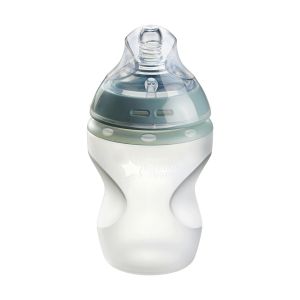
This is a demo store. No orders will be fulfilled.
Subscription orders can be cancelled at anytime. Standard delivery will be charged on each subscription order. Find out more about subscriptions.
They’re easy and fuss free
Your products are automatically sent to you
You save when you sign up for a subscription
You can cancel at any time
As an LGBTQ+ person or couple, there are so many things to consider when thinking about having a baby.
No matter where you sit on the LGBTQ+ spectrum, if you want to have a baby, you need to decide how you're going to make that baby and manage people's misconceptions and assumptions along the way!
Every family-building journey is unique, and LGBTQ+ parents need to consider who'll carry the baby, whose egg and sperm will be used, if they will use a surrogate, IVF, IUI, or think about fostering or adopting - either internationally or domestically.
In celebration of Pride and to shine a light on the process of becoming an LGBTQ+ parent, we've gathered some common myths and misconceptions to bust!
False - Although many LGBTQ+ individuals and couples do pursue adoption to become parents, this isn't the only option available!
True - These options include surrogacy and gestational carrying with donor eggs and sperm.
False - Only one of the parents provides genes at a time when LGBTQ+ same-sex couples have a biological baby, so it's not possible for both same-sex partners to provide genes that conceive the child.
Most LGBTQ+ parenting paths involve the use of a sperm or egg donor who contributes their genetics to the child, this is sometimes known as a 'gamete donor'.
True - For couples where one parent is contributing eggs or sperm, using egg or sperm from a relative allows the other parent to contribute genes from their family tree.
For example, in a same-sex female couple, if partner A is hoping to use her eggs and partner B has a brother who is able and willing to be a sperm donor, they could link their child to both parents' family trees. And for a same-sex male couple, if one partner has a sister who can be an egg donor, the other partner may be the genetically intended father.
False - Trans people can be biological parents.
Before beginning hormone therapy or puberty suppressing medication, people who're considering transitioning are often advised to consider cryopreservation of either their eggs or sperm, which can then be used in the future to help complete a biological family-building journey.
True - Although it's sometimes a complicated and extremely personal journey, trans people who've already used medication to transition to their gender identity can work with experienced medical professionals to regain their reproductive capacity.
False - Trans men, trans women, and non-binary people can all breastfeed or chestfeed (a term for those nursing without breasts) their baby.
True - And you do not need to have given birth to be able to breastfeed! Them (the award-winning authority on what LGBTQ+ means today), The Lactation Network and La Leche League have lots of great information on this topic.
LGBT Mummies' purpose is to support LGBT+ women and people globally on the path to motherhood or parenthood.